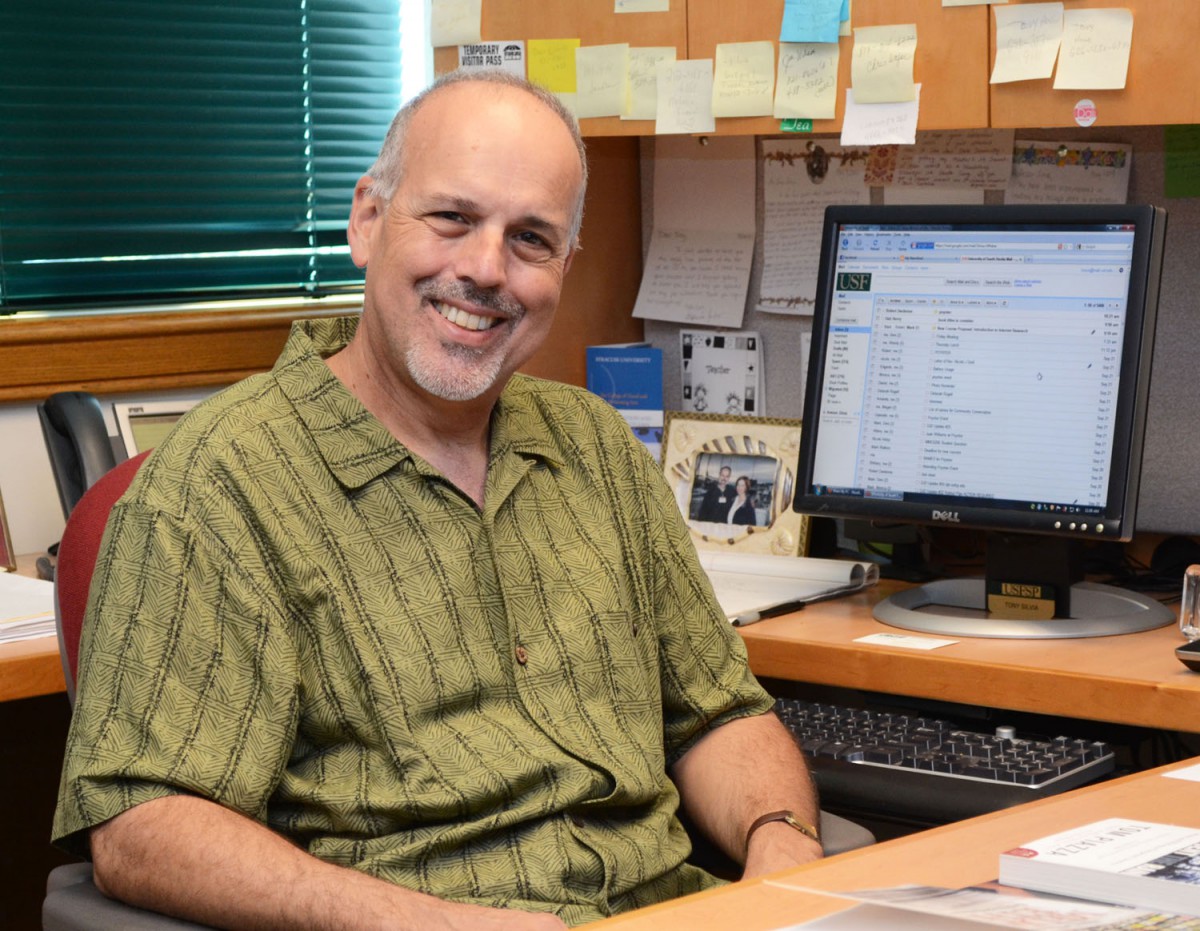Tony Silvia’s office gives off a sense of accomplishment. Posters of his previous book covers adorn the walls, a CNN badge sits on top of a bookshelf, and degrees from the University of Birmingham, England, are propped up on his desk.
Fresh off the release of his new book, “Power Performance: Storytelling for Journalism and Public Relations,” Silvia is eager to engage students in the power of multimedia and explain how to survive as a journalist in the ever-changing industry. He will also be one of the festival authors at The St. Petersburg Times Festival of Reading on Oct. 22.
“The way stories are told and the reason people listen to stories across centuries, is pretty consistent, but the methodology for telling that story has changed dramatically in just the last decade, the last five years, even in the last year,” said Silvia, professor in the Journalism and Media Studies department. “It changes almost daily, because we get these new story telling tools that assist us in the ultimate purpose in telling a story that will be compelling to an audience.”
In a story-telling culture, Silvia said, it is important to be able to tell stories using different platforms—like audio, video, blogs, surveys and podcasts.
“When you tell a story for instance, you don’t automatically assume that there is first of all one way to tell that story, but that there is one best way to tell that story,” Silvia said.
The idea for “Power Performance” came along with Silvia’s co-author, news anchor Terry Anzur. Anzur has worked in Los Angeles, New York, and Chicago, while coaching T.V. news stations.
“A few years ago, Terry became a consultant for a T.V. news station basically coaching them in doing their news better, sometimes on the talent end, in terms of people’s on air presentation skills and sometimes on the writing end,” Silvia said.
Anzur and Silvia met about four years ago at a conference in Washington, D.C. and upon realizing that they shared the same opinions on where journalism broadcasting was heading decided to embark on this book.
“[‘Powerful Performance’] takes people who only knew how to do video, and teach them the skills for how to do traditional newspaper, to take traditional newspaper people, and show them how they needed to adapt for television, to take both groups of people and show them how to adapt their story-telling skills to the web,” Silvia said.
Silvia wants students to understand that they must evolve with journalism and storytelling as it continues to change, so that they are employable after graduation.
“If you don’t embrace change, change will come,” Silvia said. “The difference is rather than you embracing it, it will roll right over you.”
Employers aren’t looking for “one-trick ponies,” he said.
“If all you know how to do today is write for a newspaper, if all you know how to do is television, if all you know how to do is radio, if all you know how to do is take photographs, if all you know how to do is shoot video, that makes you a ‘one-trick pony’,” Silvia said. “You can’t do anything else and that doesn’t make you valuable to a news organization.”
After graduating with his undergraduate degree from the University of Rhode Island, Silvia taught journalism as faculty for the university. He went on to obtain his master’s and doctoral degrees from the University of Birmingham, England.
From there he pursued a career in television journalism. He worked as a correspondent for CNN, was nominated for three Emmy awards, and has written other books, about baseball and media.
In the future, Silvia is contemplating about writing another baseball book dealing with former major league players that have gone into broadcasting.
Photo by Daniel Mutter



